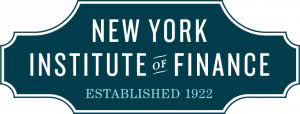Quantitative Finance/ Financial Engineering has earned a well-deserved reputation for a field where the smartest people like to converge. It’s a field that is populated by mathematicians, physicists, engineers and other such professionals bringing in their expertise to mathematically tackle challenges in the domain of finance. What makes it hard is the inter-disciplinary knowledge that is required. You need to understand not only finance but also mathematics, calculus, algebra, optimization (operational research), engineering elements, probability theory etc.
A quant/ financial engineering career is not for everyone. But if you are a math-geek type who doesn’t mind sitting in front of a computer doing advanced math stuff each day, then this is definitely a career for you. It is this complexity which requires a specialised understanding and which is why universities and training providers have created such great courses for quantitative finance. Here are my top picks.
1. Oxford Algorithmic Trading Programme
Modern Quantitative Finance is embedded in computer automation, algorithmic learning, machine learning and other computational techniques. Which is why this course from Oxford that combines quantitative finance with algorithmic trading is one of my top picks.
The course starts off with an excellent introduction to classic and behavioural finance theory. This is the traditional approach to quantitative finance and includes discussion of topics like efficient market hypothesis, the efficient market frontier, behavioural biases, market trends and terminologies.
This is when we start off with systematic trading and how the industry currently functions. Hedge funds are the main drivers of systematic trading using quantitative finance techniques. You will learn about their characteristics, how such models can succeed or fail, identify the main players and any current and future opportunities.
From there, you dive deep into technical analysis and trading system design. This is where the financial model really starts to come together. This includes the use of APIs for getting data, the risks on such models, the rules that are generally used, and means to measure performance. Once a model has been built, it must be evaluated and optimized. You will learn to gauge its feasibility after gathering relevant sample data and establish its functionality and viability.
The last few weeks are spend on evaluation criteria for such models. The strengths and weaknesses of such models and also evaluating funds that use such models. Future trends like algo trading, use of AI and machine learning, the challenges that these trends pose are all explored in great depth.
Overall this is a well structured course that provides a strategic insight into this topic. Its not a very technical course so its best suited for mid to senior level managers who don’t have to get down to the day-to-day nitty gritty of quantitative finance but rather providing leadership and high level oversight. Oxford is of course a great brand to have on your Resume as well.
Click here and use code GS-AF-BBD15 for a 15% discount on this course!
Summary
| Time to Complete | 6 weeks, at 8-10 hours a week |
| Format | Self-paced, fully online |
| Level | Intermediate |
2. Artificial Intelligence for Trading from Udacity
Quantitative Finance requires advanced AI tools and programs to be able to fully model financial systems. This course has been specifically designed keeping that in mind with heavy use of Python and AI to solve quantitative financial problems. You will be creating a lot of practical programs in this course to help you do just that. Note that some amount of Python experience is required but the course does a good job of easing you in.
You start off with a look at basic quantitative trading concepts like trading signals, data processing, portfolio management, crunching historical data to develop trading strategies and constructing multi-factor models. The first few weeks are spent working on quantitative trading concepts like these. However, the best part is that you are not just learning the theory, but you will spend most of the time actually building models that utilize these concepts. A momentum trading model using historical data to figure out how profitability and analyzing trading signals to seek out alpha. And another breakout strategy model that uses statistical data to find alpha. Pretty neat stuff.
This is followed with a deep dive into quantitative aspects of portfolio optimization, Smart Betas, alpha and risk analysis and using other advanced quantitative techniques. Here too you will be creating real world models to really cement your grasp of the core concepts. A project that generates multiple alpha factors and then evaluates their performance to pick the best ones while using real world constraints like leverage and risk models. You will also create portfolios using smart beta methodologies and optimization.
The best part is yet to come. We finally move on to natural language processing to help with sentiment analysis. This utilizes recurrent neural networks and deep learning to process text and corporate filing to generate sentiment based trading signals. This is as good as it gets. There are various projects to complete here as well using deep neural networks on news data and another for sentiment analysis.
Finally, you will combine everything to create a model for an actual index and use large data sets for seeking alpha. Creating a solid back testing framework is also part of the course so that performance can be evaluated and analysed.
In addition to excellent course materials, the best real world projects and video training materials, you also get access to some value added perks. This includes technical mentor support and access to career services to help you grow.
Click here to generate your personalized discount for this course!
Summary
| Time to Complete | Around 6 months at 10 hours a week |
| Format | Self-paced, fully online |
| Level | Intermediate |
3. Quantitative Methods for Finance Professional Certificate from NYIF
Course Review
This is the most comprehensive course on Quantitative Finance outside of an MFE (Masters in Financial Engineering) degree from a top university. And even then, it provides desk-ready skills that formal university programs lack. Which is why I would recommend it even to Finance post-grads interested in becoming a quant or trader.
Topic coverage includes algebra & calculus as it used for finance, probability theory, stochastic processes, statistics, regression analysis, VBA programming, Monte Carlo and Lattice techniques including some real-world applications. All of this is topped of with a section on giving you desk-ready skills.
It’s pretty much everything you need to hit the ground running in quantitative finance role. Note that this is an advanced course, so you need to possess a basic prior understanding of mathematical concepts like calculus and probability.
The course quality itself is top-notch. NYIF is a well-known brand providing financial education to bankers, traders and other finance professionals for over 90 years now. This 5-day crash course can be really helpful if you need to prepare for an interview and the formal certification will most definitely give your CV a boost.
Summary
- Time to Complete: 5 days.
- Available fully online in a virtual classroom or on-site.
4. Mathematical Methods for Quantitative Finance from MIT
Course Review
This course is part of a bigger Micromasters program in finance offered by MIT. This specific module covers mathematical methods for quantitative finance but feel free to apply for any other modules that you think you need. Might even be worth it to complete the whole program.
The focus here is building the foundations of financial engineer and quantitative finance. You start off with some basic probability theory and statistics. This includes common distributions, CLT, LLN, asymptotics, statistical inference, hypothesis testing, time Dreiser, econometrics, regression etc.
You then move on to more increasingly complex topics like Bernoulli trials, Markov processes, continuous time stochastic processes, linear algebra and so on. This course does a good job of giving learners a taste of what quantitative finance is all about. Itô calculus, differential equations, derivative pricing and risk management, covariance and correlation matrices, linear time series models etc. to help you build your quant foundation.
The last few weeks cover optimization strategies like Lagrange multipliers, multivariate optimizations, quadratic programming, dynamic programming, variational methods, portfolio construction Monte Carlo techniques and so on.
Summary
- Time to Complete: 12 weeks
- Available fully online. Instructor-led on scheduled dates.
5. Finance & Quantitative Modeling for Analysts
Course Review
If you are looking for a more beginner friendly quantitative finance course, then this is your best bet. You should choose this if you are not 100% sure this is the right field for you and just want to test the waters. But it can also be good for roles which only need some amount of quantitative finance. Most finance professionals would benefit from having this understanding.
This is course from Wharton so expect some top quality stuff here. The instructors are the best in their field and have taught people who have eventually gone on to the very top of their fields. In terms of brand value for CV building, this one is hard to match. You get a shareable certificate upon successful conclusion of the program which you can use on LinkedIn or as a CV point.
The course covers all the important stuff like quantitative models, spreadsheets and tools and even the basics of corporate finance which is necessary to understand what exactly you are modeling. You will learn to heavily rely on data and mathematical models to solve problems in finance and make predictions based on scientific methods. There is also a hands-on capstone project that you need to complete. This will help you put all your learning into practice.
Summary
- Time to Complete: Around 30 hours.
- Available fully online and on-demand via Coursera’s excellent e-Learning platform. Complete it at your own pace
6. Financial Engineering and Risk Management from Columbia
Course Review
Another quality course from Columbia University designed to be used by quants and traders. The course is very high-quality covering concepts from finance, economics, mathematics, statistics, engineering and computer science. It’s pretty much a quant’s wet dream.
The material is presented in a highly digestive format which makes it palatable for even beginners. Quantitative Finance can be a tricky subject for many, but this course makes it seem easy.
There are actually two courses with Part 1 focusing on the use of stochastic modelling to price equity, fixed income, credit and MBS derivatives. Part 2 dives deeper into portfolio optimization, and the use of financial engineering for real option pricing and algorithmic trading. I highly recommend you complete both.
Columbia is an exceptional brand to have on your CV. On successful completion, you get a shareable certificate that you can use to boost your CV or add to your LinkedIn Profile.
Preview Course/ Enrol Now – Part 1 Preview Course/ Enrol Now – Part 2
Summary
- Time to Complete: 30 hours for both Parts 1 and 2.
- Available fully online and on-demand. Complete it at your own pace.
Master of Financial Engineering (MFE)
Several top universities offer MFE courses for quants and financial engineers. However, it is a big commitment (financially and time wise) and usually undertaken by professionals who already have some experience under their belts and want to further their careers. It’s also quite hard to get into the best ones.
If you fit into that profile and know that you want to be a quant for life, then you should definitely consider an MFE program. The top MFE programs are offered by:
Given the high opportunity cost of such programs, I only recommend them if you can get into one of the top schools.
Summary
- Time to Complete: More than a year.
- Not available online and significant time/ monetary investment.
Related Articles
- FMVA Certification
- Best M&A Courses
- Best Investment Banking Courses
- Best Project Finance Courses
- Best Financial Analysis Courses

